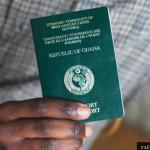As Donald Trump looks to return to the White House, Africa is at a turning point. Will his "America First" policy bring opportunities or chaos for the continent? With possible economic benefits and changes in diplomacy, Trump's second term could change US-Africa ties in ways we might predict or not expect. Read our thorough review of what Trump 2.0 could mean for Africa's future.
As the United States gears up for another presidential election cycle, Donald Trump's return to the White House looms large on the global stage. For Africa, a continent often overlooked in U.S. foreign policy discussions, the implications of a second Trump presidency are both significant and nuanced.
This analysis delves into the potential ramifications of Trump's "America First" doctrine on U.S.-Africa relations, examining the complex interplay of economic, diplomatic, and security considerations. We explore how Trump's transactional approach to foreign policy could reshape America's engagement with African nations, potentially altering decades-long patterns of aid, trade, and geopolitical alignment.
From the corridors of power in Washington to the rapidly developing urban centers across Africa, stakeholders are grappling with a fundamental question: Will Trump's return represent an opportunity for increased investment and strategic partnerships, or will it signal a retreat from the continent and a shift in the global balance of power?
This piece offers a balanced, in-depth examination of the potential pros and cons of a second Trump term for Africa. It provides critical insights for policymakers, diplomats, business leaders, and anyone seeking to understand the future trajectory of U.S.-Africa relations in an increasingly multipolar world.
As we navigate through this analysis, we'll unpack the complex dynamics at play, offering a clear-eyed assessment of the challenges and opportunities ahead. Join us as we explore "Trump 2.0 and Africa: A Double-Edged Sword" – a crucial examination of a relationship that could significantly shape the geopolitical landscape of the coming years.
The Pros: Potential Benefits for Africa
Economic Opportunities
Trump's business-oriented approach could lead to increased US investment in Africa. His administration may focus on:
- Boosting US business investments by removing regulatory barriers
- Supporting more private sector investments
- Favoring bilateral trade deals over multilateral agreements
This approach could benefit resource-rich countries and those with strong regulatory environments.
Security Cooperation
Trump's administration is likely to maintain a strong focus on counterterrorism efforts in Africa. This could result in:
- Increased military aid to countries combating terrorist groups
- Enhanced intelligence-sharing and joint military training programs
- Continued support for counterinsurgency efforts in regions like the Sahel and Horn of Africa
Reduced Emphasis on Democracy Promotion
Some African leaders may welcome Trump's tendency to prioritize strategic interests over democracy promotion. This could lead to:
- Less external pressure on governance issues
- Potentially stronger relationships with countries that have faced criticism for human rights concerns
The Cons: Potential Drawbacks for Africa
Aid Reductions
Trump's "America First" policy could result in significant cuts to US foreign aid. This may impact:
- Health initiatives like PEPFAR (HIV/AIDS relief)
- Education and infrastructure development programs
- Climate change adaptation efforts
Immigration Restrictions
Trump's strict stance on immigration could negatively affect African communities. Potential consequences include:
- Tighter visa restrictions for African nationals
- Increased deportations of undocumented African immigrants in the US
- Reduced remittances from African diaspora communities
Geopolitical Pressures
Trump's approach to global politics could put African nations in difficult positions:
- Increased US-China rivalry may force African countries to choose sides
- Potential tariffs on Chinese goods could disrupt African economies reliant on Chinese trade
- Reduced US engagement in multilateral institutions could weaken Africa's voice in global affairs
Navigating Trump's Second Term: Strategies for African Nations
To maximize benefits and mitigate risks, African leaders should consider the following approaches:
1. Leverage Economic Partnerships: Position themselves as indispensable trade partners, capitalizing on Trump's focus on bilateral deals.
2. Strengthen Security Cooperation: Engage proactively in counterterrorism efforts to attract US security investments.
3. Diversify Alliances: Maintain relationships with other global powers to balance US unpredictability.
4. Focus on Mutual Interests: Emphasize areas where African and US interests align, such as countering China's influence or accessing critical minerals.
5. Promote Intra-African Cooperation: Strengthen continental initiatives like the African Continental Free Trade Area (AfCFTA) to reduce dependency on external partners.
Conclusion
Donald Trump's return to the White House brings a complicated situation for US-Africa relations. His business-like approach might provide some economic chances and security help, but it could also mean less aid and fewer diplomatic ties. African countries need to carefully handle this shift, using their advantages and broadening their partnerships to protect and promote their interests.
Africa, being the second-largest and second-most-populated continent, is becoming more important globally. How Trump's government interacts with Africa will affect not just US-Africa relations but the larger global political scene as well. Leaders and citizens in Africa should stay alert and take action to influence this changing relationship.
Leave a comment
Your email address will not be published. Required fields are marked *




